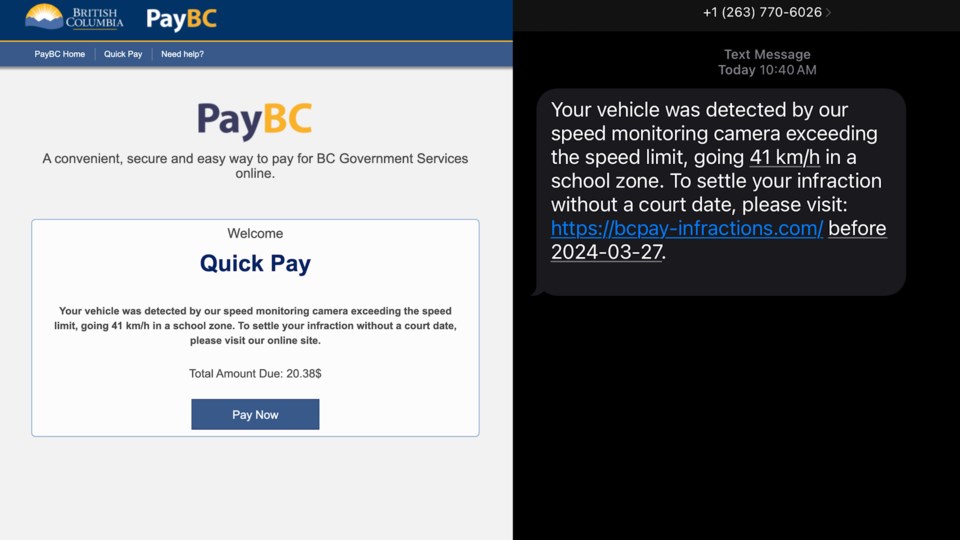Nanaimo RCMP say a speeding-ticket scam was making its way through the city on Monday, and led to many calls to the detachment’s switchboard to check its authenticity.
The scam message comes in the form of a text that says: “Your vehicle was detected by our speed monitoring camera exceeding the speed limit.”
It continues to say that the driver was travelling “41 km/h in a school zone” and directs the recipient to “please visit” the provided link before a certain date.
The link leads to a website that appears identical to the provincial government’s PayBC site. Users are asked for private information such as name, birth date and address, along with a credit card number.
The fake website reads: “To settle your infraction without a court date, please visit our online site.”
It claims the total amount due is 20.38$ — complete with the dollar sign placed after the figure.
Speeding in a school zone has a minimum fine starting at $196 in B.C.
The text is the same one that recently made its way to dozens of people in the Okanagan and prompted a news release from Kelowna RCMP.
“It’s just another scam to get a hold of your money via your credit card,” said Nanaimo RCMP Reserve Const. Gary O’Brien. “Just delete it, but afterwards make sure you share the text message with friends and family so they don’t fall for it.”
Staff at the Ministry of Finance’s Corporate Accounting Services also issued an alert about the website, warning people to only ever make payments through its PayBC site at pay.gov.bc.ca.
The Transportation Ministry says people should never share information without verifying the legitimacy of the website.
“Please be vigilant against phishing attempts,” it says. “Do not click on unfamiliar links received via text or email that ask for your personal or credit card information.”
— With a file from Alanna Kelly, Glacier Media



